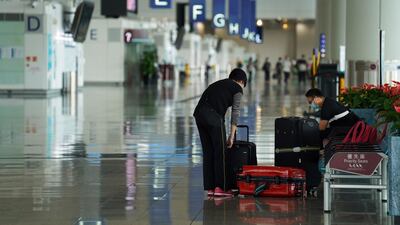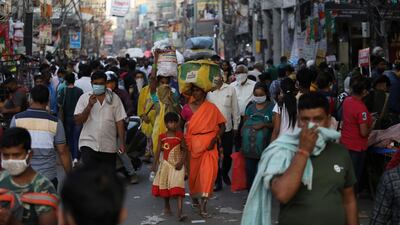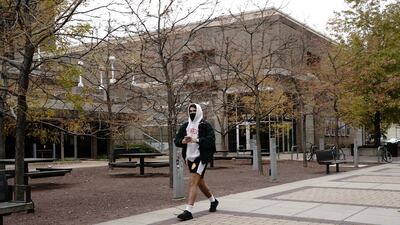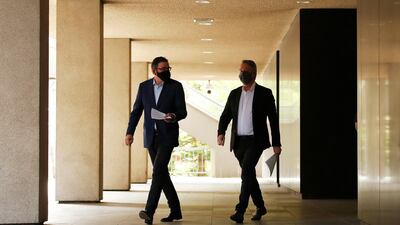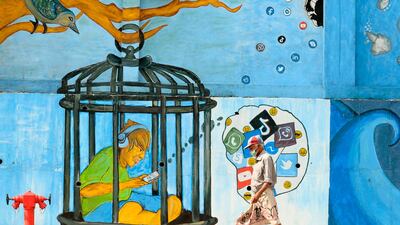India's Tata group said it will soon roll out a low-cost Covid test that gives results in 45 minutes.
The test involves a nasal swab and the results can be delivered using a simple paper strip, similar to a pregnancy test.
Tata's health division chief set out details of the potential breakthrough screening at a UAE-India health forum, attended by government officials from both countries, this week.
He said the Feluda test, named after a fictional Bengali detective, could be made available by the end of the month.
It is expected to be priced at less than $7 (Dh25).
“The benefits in the current pandemic is that it is simple, reliable, highly scalable and this test does not require expensive machines,” said Girish Krishnamurthy, chief executive of Tata Medical and Diagnostics, at a virtual event organised by the Indian consulate in Dubai.
“The turnaround time is very quick. In 45 minutes, you can get the viral test and nucleic acid test and more importantly a tamperproof result," he said.
"The product is being tested and is in production mode.
“We are looking to offer it to the world by the end of this month and from that point of time we will start moving a significantly large volume for the world.
“We have interest coming from the UAE and this test will be available very, very soon for your country.”
The Tata group has set up a large plant in India to produce a sizeable volume and is in talks with laboratories and hospitals.
“In the next two to three months, we will be in a position to handle demand from India as well as global demand," he said.
Dr Harsh Vardhan, India’s federal health minister, last week said the test had been approved by the Drug Controller General of India for a commercial launch.
Based on tests during trials and in private labs, Feluda showed 96 per cent sensitivity and 98 per cent specificity.
The accuracy of a kit is based on these two indicators – a highly sensitive test can detect almost everyone who has the virus.
And a high specificity rate will accurately rule out people who don’t have the disease, ensuring fewer false negative and false positive results.
The test was developed by a team at the Delhi's CSIR-Institute of Genomics and Integrative Biology, led by Dr Souvik Maiti and Dr Debojyoti Chakraborty.
The main advantage is fast results, affordability, ease of use and mass testing.
“We are working on the next version of this test which can be tested by saliva,” Mr Krishnamurthy said.
“It will not only reduce the time to less than 20 minutes, it is going to reduce the cost significantly.”
He said such breakthroughs were required to get people back in factories, schools, colleges and sporting events.
The Feluda test uses Crispr technology, short for Clustered Regularly Interspaced Short Palindromic Repeats, or very precise gene-editing to sense the virus.
Several research companies in the US and UK are developing similar paper-strip tests.
The technique can detect specific sequences of DNA within a gene so it is capable of detecting even low quantities of the genetic material of the coronavirus.

